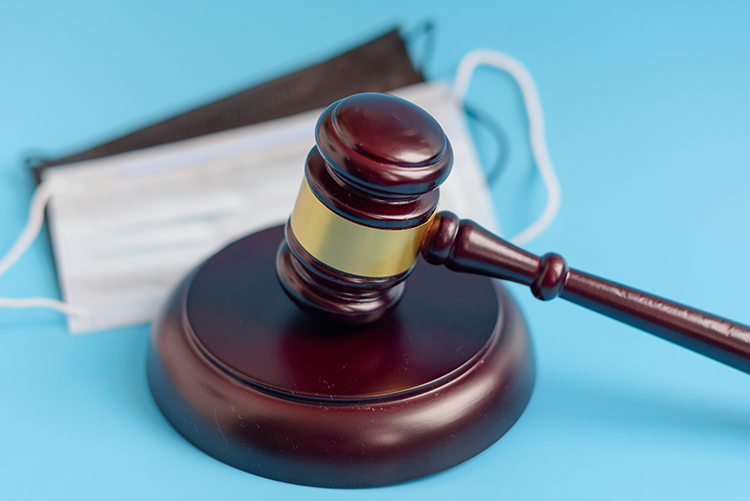COVID-related backlogs no longer reason to delay misdemeanor trials, appeals court says

An appellate court in California has admonished a lower court for continuing to cite the COVID-19 pandemic as a valid reason to delay trials.
On Monday, a unanimous First District Court of Appeal panel dismissed nearly three-year-old misdemeanor DUI charges brought against Lynette Mendoza, whose trial was delayed seven times between March 2023 and March 2024. The San Francisco County Superior Court referred to an ongoing “COVID order” as the impetus for several continuances—despite prosecutors and the public defender’s office both saying they were ready to move forward.
“Here, the People had the burden of establishing good cause for delay and coming forward with evidence to meet that burden,” the three-justice panel wrote in its opinion. “What occurred was not a matter of the court refusing to accept an erroneously offered concession on a point of law.
“Instead, the court went beyond its proper judicial role, stepped into the shoes of the prosecution, and attempted to satisfy the People’s evidentiary burden to show good cause for delay.”
Law.com has coverage of the decision.
The First District Court of Appeal panel wrote that it was taking “the unusual step of publishing” its opinion “despite the fact petitioner’s right to relief is obvious.” In her case, Mendoza had asked the court to dismiss the charges against her because her right to a speedy trial was violated.
The superior court had denied Mendoza’s motion, saying it “took extraordinary and timely measures to recover from the backlog of cases arising during the COVID-19 pandemic and further [found] that there has been and continues to be good cause for addressing the misdemeanor backlog for matters previously continued through June 2024.” To support its order, the superior court relied on information released by state and local officials, among others, earlier in the pandemic.
“If the facts in the court’s order are to be credited, there are potentially hundreds of misdemeanor cases in superior court that are beyond the statutory last day to commence trial under section 1382,” according to the panel. “It appears that many of the defendants in those cases sought dismissal on the same basis as petitioner.”
Randolph Quezada, a spokesperson for the San Francisco District Attorney’s office, said in a statement published by Law.com that prosecutors agreed with the First District Court of Appeal’s decision.
“We saw then, what the First District clearly points out now, there was no competent evidence to continue cases without good cause,” Quezada said. “We appreciate the First District’s decision to publish this decision, which creates a binding precedent that the superior court and its appellate division are obliged to follow, settling this matter once and for all.”



